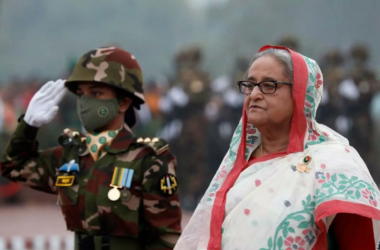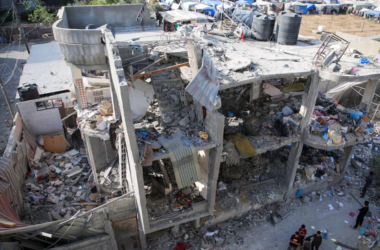In the midst of the ongoing conflict in Gaza, families around the world anxiously await news of their loved ones, grappling with feelings of guilt and fear as they witness the suffering from afar. Reem Alfranji, residing in Jordan, shares a sentiment shared by many – a simple act like drinking a glass of water becomes a poignant reminder of the struggles faced by her mother and others trapped in the besieged enclave.
For weeks, the people of Gaza have endured relentless bombardment, severed from essential supplies of food, water, and medicine. Communication channels, frequently disrupted, leave those outside the territory reliant on sporadic text messages or phone calls, desperate for any signs of life from their loved ones. Sleep becomes a luxury for some, while others struggle to find sustenance.
Many individuals with ties to Gaza, having experienced the harrowing realities of airstrikes and shattered glass turning into shrapnel, express a deep yearning to be with their families during these trying times, despite knowing their inability to halt the bombardments. The toll of the conflict is staggering, with over 12,000 lives lost, including about 5,000 children, according to the health ministry in Gaza. Israel’s military campaign, launched on October 7 in response to attacks by the group Hamas, has resulted in a dire humanitarian crisis.
Compounding the challenges, Israel, with support from Egypt, has imposed restrictions on essential supplies to Gaza, leaving the majority of residents barred from leaving the enclave. Civilians within Gaza face illness due to contaminated water, overwhelmed hospitals incapable of providing adequate care, and a meager existence sustained by scarce bread.
Mohammed Salah Arafat, now residing in Washington, D.C., grapples with guilt over his access to food, freedom, and rights, while his brother, still in Gaza, volunteers as a nurse in a hospital stripped of basic supplies. The emotional toll of witnessing suffering from a distance has left Arafat emotionally numb.
Iman Ayman, living in England, recounts her sister’s traumatic childbirth experience in a Gaza hospital devoid of painkillers, highlighting the dire conditions residents face daily. The lack of fuel and impassable roads complicate access to medical facilities, forcing pregnant women to endure treacherous journeys.
These stories echo the sentiment of many living abroad with family in Gaza, desperately clinging to sporadic communication channels like WhatsApp. Fear, guilt, and helplessness define their days as they await updates on the safety and well-being of their loved ones.
As diplomatic efforts strive for a temporary pause in the fighting, the international community watches closely, aware that a lasting solution is paramount to alleviate the suffering of Gaza’s residents. The anguish of families abroad serves as a stark reminder of the human cost of conflict and the urgent need for a resolution to end the cycle of violence in the region.








